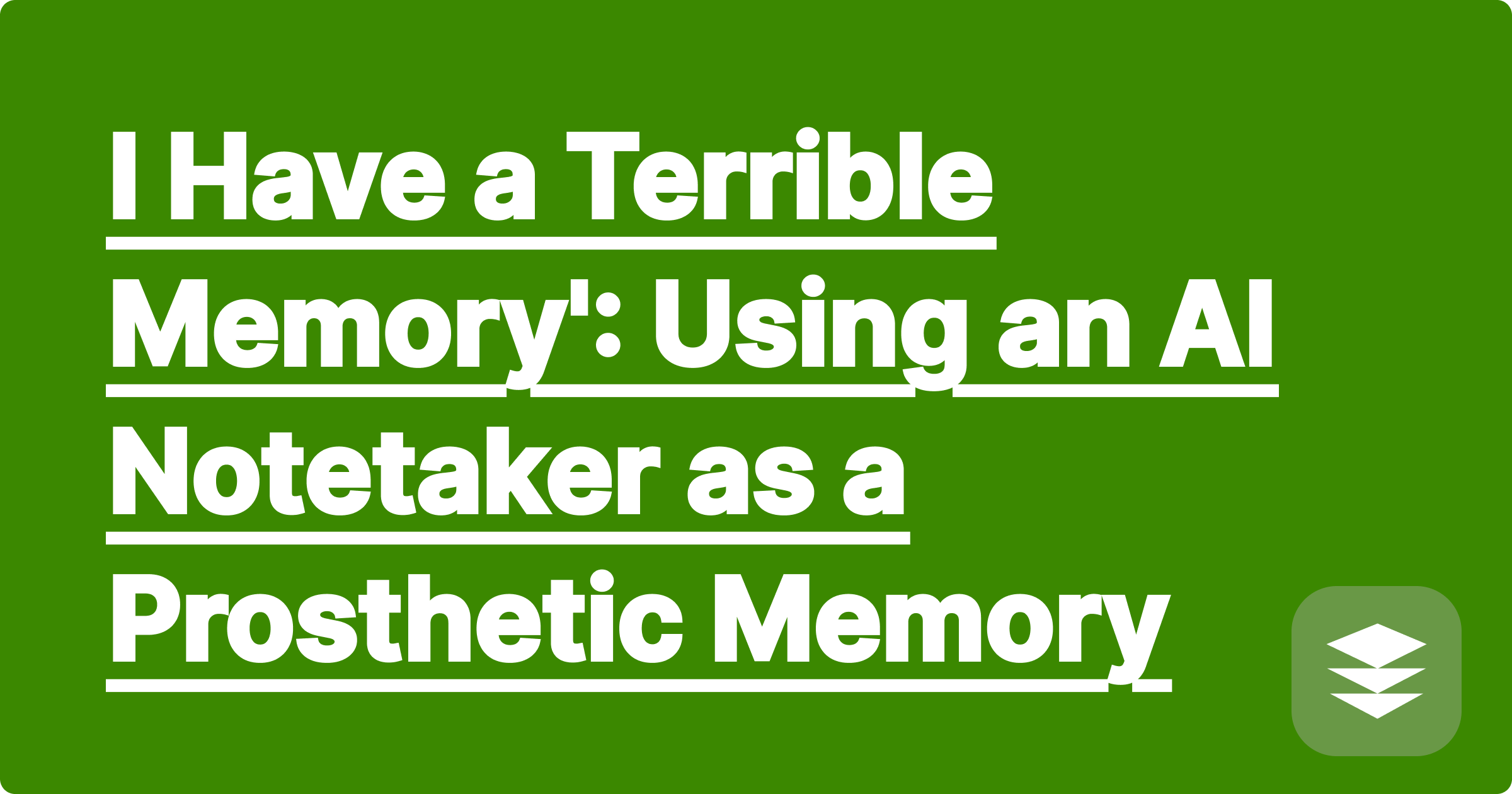
It's a deeply frustrating feeling. You sit through an entire lecture, you read the entire chapter, but when it's time to actually recall the information for a test or a homework problem, your mind is a blank. If you've ever thought to yourself, "I just have a terrible memory," you're not alone. Many brilliant students struggle not with understanding the material, but with retaining it over time. This isn't a life sentence; it just means you need a better system. You need a prosthetic memory.
The concept of prosthetic knowledge is simple: we use external tools to augment the limitations of our own biological brains. A simple to-do list is a prosthetic memory for tasks. A calendar is a prosthetic memory for appointments. In the age of AI, we can now create a powerful, intelligent prosthetic memory for our entire academic life. These tools for bad memory are designed to give you a perfect, searchable record of everything you learn.
An AI-powered note taker like GPAI Cheatsheet is the ultimate prosthetic memory for students. It's designed to solve the core problems of memory: capturing information reliably and retrieving it easily.
[Image: A graphic of a student's head with a "leaky" memory icon. An arrow connects it to a solid, searchable GPAI database icon labeled "Prosthetic Memory." Alt-text: A visual explaining how an AI notetaker can act as a prosthetic memory for students.]
This system fundamentally changes your relationship with studying. You are freed from the immense anxiety of trying to hold every single fact in your head. Your brain's job shifts from being a "storage device" to being a "processor." You can trust that the facts are safely stored in your prosthetic memory, and you can dedicate your mental energy to the higher-level tasks of making connections, solving problems, and thinking critically. The AI cheatsheet becomes your trusted knowledge bank, and the GPAI Solver becomes the tool you use to apply that knowledge.
For students who genuinely struggle with working memory, this tool is more than just a productivity hack; it's a powerful accessibility tool. It levels the playing field, allowing your academic performance to be a true reflection of your intelligence and effort, not the limitations of your recall.
A: No, in fact, it can improve it. By reducing the anxiety associated with trying to remember everything, you free up cognitive resources. Furthermore, the act of reviewing your well-organized, AI-generated notes is a form of spaced repetition that can strengthen your biological memory of the most important concepts.
A: Start small. Don't try to process your entire academic history at once. Just start with your current classes. Make it a habit to use the AI note taker for every new lecture. Over time, you will build a powerful and organized "second brain" that grows with you.
Stop blaming yourself for having a "bad memory." Start building a better system. By using an AI notetaker as your personal prosthetic memory, you can offload the burden of perfect recall and unlock your brain's true potential for deep thought, creative insight, and stress-free learning.
[Build your perfect memory today. Use the GPAI Notetaker as your second brain. Sign up for 100 free credits.]
How to Use GPAI as Your Personal 'Fact-Checker' Before You Speak Up in Class
The 'Rubber Duck Debugging' Method, with an AI That Actually Talks Back
I Have a Terrible Memory': Using an AI Notetaker as a Prosthetic Memory
The Art of the Nap: How AI Can Help You Study in Short, Intense Bursts
What Your Choice of AI Tool Says About Your Personality
How to Build a 'Career Moat' Using Your AI-Generated Knowledge Base
Surviving a Professor Known for 'Trick Questions' with an AI Test Generator
Is This Concept on the Exam? Using AI to Analyze Past Tests
The Ultimate 'Pre-Lecture' Ritual: How to Prime Your Brain in 5 Minutes
Did I Plagiarize Myself?': Using an AI to Rephrase Your Own Previous Work